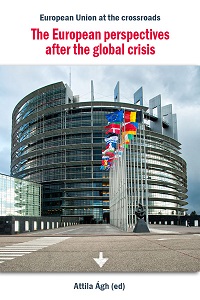Prospects and Challenges in Post-Lisbon EU Politics and Decision-Making: Presidentialisation, Parliamentarisation and Partycisation
Prospects and Challenges in Post-Lisbon EU Politics and Decision-Making: Presidentialisation, Parliamentarisation and Partycisation
Author(s): L. Zoltán Simon
Subject(s): Geopolitics
Published by: Kossuth Kiadó Zt.
Summary/Abstract: The Lisbon Treaty is a milestone in the history of European integration, even if scholars express diverging views about the significance of the reforms.1 Lisbon provisions will certainly have a major transformative effect in EU politics as they are expected to last with both their qualities and inadequacies. As Étienne de Poncins, a senior French diplomat and EU expert, emphasises: “the difficulties encountered during the ratification of the Lisbon Treaty led to the ruling out of any idea even of a treaty exclusively or mainly dealing with EU governance and institutions for undoubtedly a long time to come. Heads of State and of Government, who spent years leaning over the engine of the European car will certainly not open the bonnet for a long time to come. They want the vehicle to move forward again, even if it lacks power. Institutional fatigue is well and truly here and it will take years before it subsides. The only reforms conceivable could therefore be introduced in homeopathic doses in future accession treaties (Croatia, or even Iceland) or through sectoral treaties dealing uniquely with one subject, for example energy or immigration issues”
Book: European Union at the crossroads: The European perspectives after the global crisis
- Page Range: 171-193
- Page Count: 23
- Publication Year: 2011
- Language: English
- Content File-PDF

